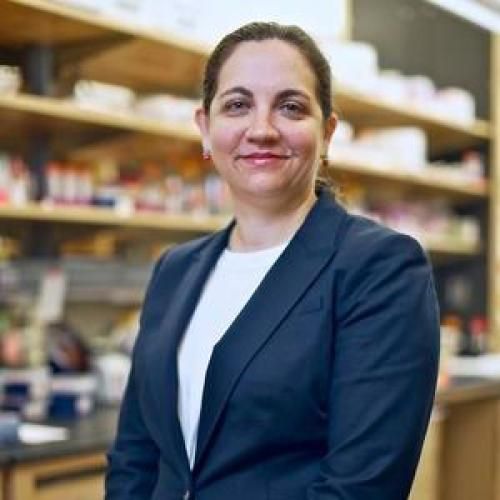
Phospholipid membrane composition affects EGF receptor and Notch signaling through effects on endocytosis during Drosophila development.
The role of phospholipids in the regulation of membrane trafficking and signaling is largely unknown. Phosphatidylcholine (PC) is a main component of the plasma membrane. Mutants in the Drosophila phosphocholine cytidylyltransferase 1 (CCT1), the rate-limiting enzyme in PC biosynthesis, show an altered phospholipid composition with reduced PC and increased phosphatidylinositol (PI) levels. Phenotypic features of dCCT1 indicate that the enzyme is not required for cell survival, but serves a role in endocytic regulation. CCT1- cells show an increase in endocytosis and enlarged endosomal compartments, whereas lysosomal delivery is unchanged. As a consequence, an increase in endocytic localization of EGF receptor (Egfr) and Notch is observed, and this correlates with a reduction in signaling strength and leads to patterning defects. A further link between PC/PI content, endocytosis, and signaling is supported by genetic interactions of dCCT1 with Egfr, Notch, and genes affecting endosomal traffic.
Duke Scholars
Published In
DOI
ISSN
Publication Date
Volume
Issue
Start / End Page
Location
Related Subject Headings
- Transgenes
- Subcellular Fractions
- Signal Transduction
- Sequence Homology, Amino Acid
- Receptors, Notch
- Protein Transport
- Protein Structure, Tertiary
- Phospholipids
- Phenotype
- Mutation
Citation

Published In
DOI
ISSN
Publication Date
Volume
Issue
Start / End Page
Location
Related Subject Headings
- Transgenes
- Subcellular Fractions
- Signal Transduction
- Sequence Homology, Amino Acid
- Receptors, Notch
- Protein Transport
- Protein Structure, Tertiary
- Phospholipids
- Phenotype
- Mutation

